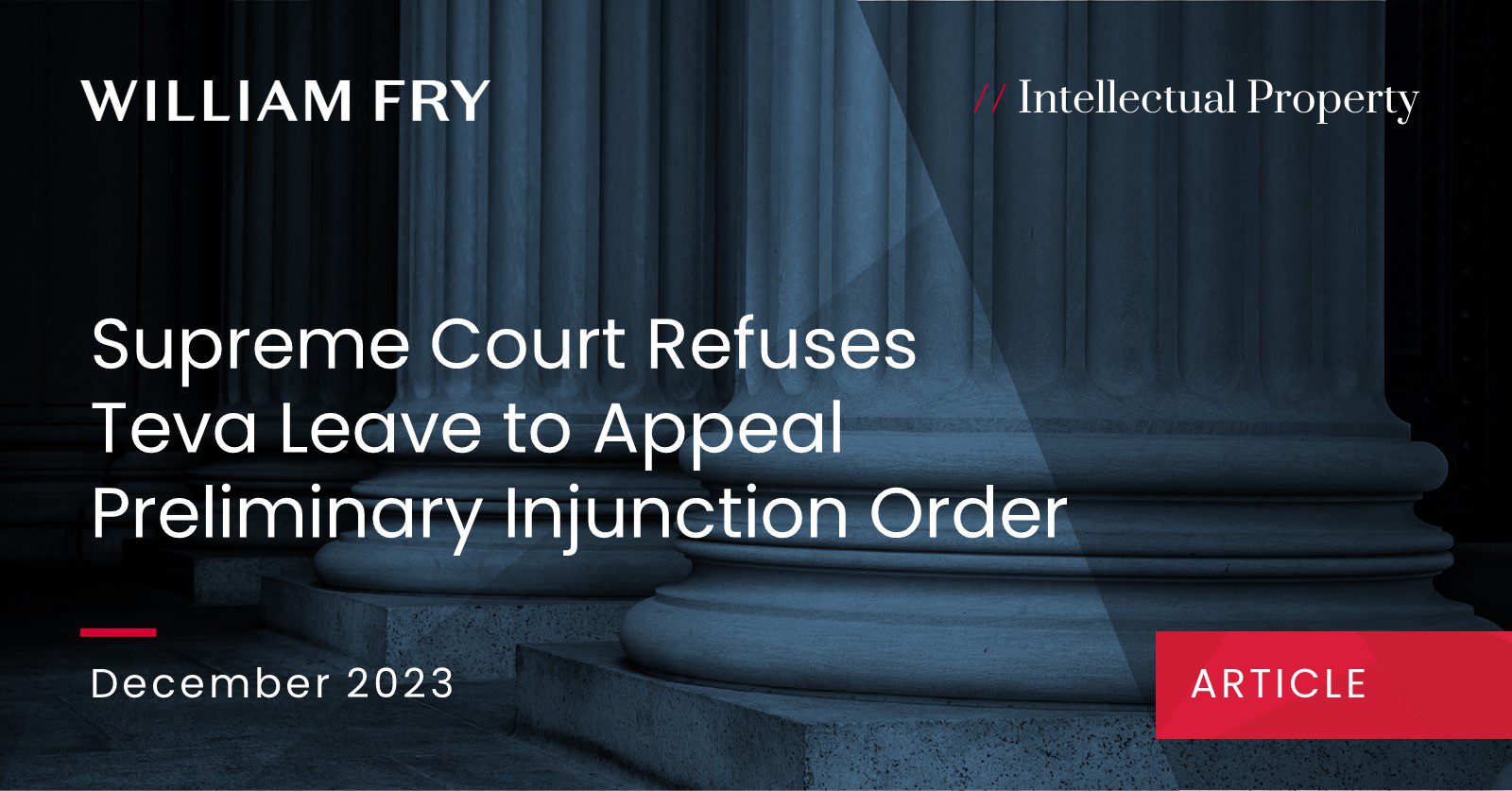The Supreme Court (Court) has refused Teva’s application for leave to appeal a preliminary injunction granted to Bristol-Myers Squibb (BMS).
The injunction, which restrains Teva from launching a generic version of BMS’ product Eliquis®, while BMS maintains a supplementary protection certificate (SPC) for its active ingredient, was granted by the High Court in February 2023 and upheld by the Court of Appeal (COA) in June 2023 (see our previous article on these decisions here.)
Applicant’s submissions
In seeking leave to appeal the decision of the COA, Teva submitted that the COA:
- failed to apply the decision in Merck Sharp & Dohme v Clonmel Healthcare [2019] IESC 65 (Merck Sharp & Dohme) (see our article on the decision here), and instead applied a rigid approach that the presumed validity of the “impugned patent/SPC” displaced any countervailing interest or factor;
- failed to give due consideration to the conduct and defaults of BMS, which it argued resulted in a delayed trial and impinged Teva’s attempt to “clear the path”; and
- interpreted Merck Sharp & Dohme as mandating the grant of interlocutory injunctions has profound implications for the availability of affordable generic medicines in Ireland.
Respondent’s submissions
In response, BMS submitted that Eliquis is available to all in the public health service and that the intellectual property right, in and of itself, sufficiently balances private incentive with public interest.
Determination
In refusing to grant Teva leave to appeal, the Court held that contrary to Teva’s arguments, the COA had acknowledged the importance of considering all relevant factors in the case and had done so. The Court held that the COA had not interpreted Merck Sharp & Dohme in such a way that the presence of a valid SPC automatically nullified any countervailing factor. Therefore, the Court was not convinced that any matter of general public importance or the interests of justice justified the grant of leave to appeal.
For guidance on the impact of this decision, please contact Charleen O’Keeffe or any member of our contentious intellectual property team.
Contributed by Aisling Casey, Louisa Muldowney
Recommended Insights












